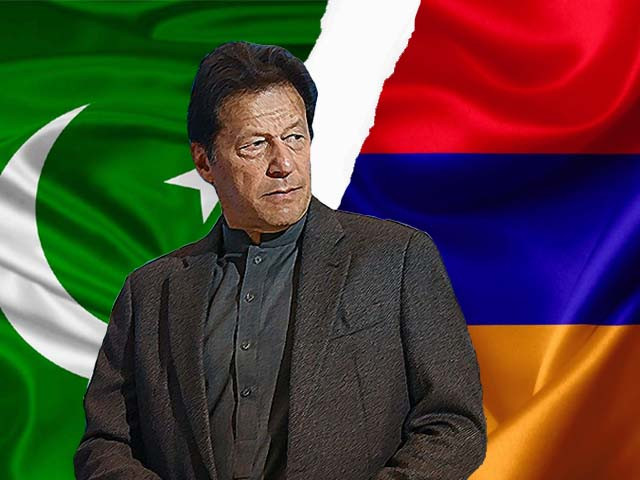Pakistan is the only country in the world that doesn’t recognise the independence of Armenia. The South Caucasus country objectively exists and is a member of the UN, but Islamabad’s stance is a principled one practiced as a form of protest in response to Yerevan’s egregious human rights violations against the Azeris of Azerbaijan’s Nagorno-Karabakh region. There are some very good reasons why Pakistan doesn’t recognise Armenia, and they’ll be touched upon briefly in this piece.
The Nagorno-Karabakh conflict is at the core of Pakistan’s decision. This war lasted from 1988-1994 and remains frozen to this day. The Armenians of Azerbaijan’s then-Nagorno-Karabakh Autonomous Oblast (region) wanted to unite with their ethnic brethren in nearby Armenia in the twilight days of the USSR. This was a direct consequence of the widespread explosion of pent-up nationalist sentiment in the Soviet Union triggered by Gorbachev’s failed experiment with glasnost (“openness”).
The Armenian-Azeri conflict long precedes that period, however, but was kept under control by the Soviet authorities until the central government began to crumble in the late 1980s. Stalin placed the majority-Armenian region of Nagorno-Karabakh under Azerbaijan’s administrative control as part of his nationality policy that critics claim was implemented as a form of divide and rule. This was never a serious issue until the dissolution of the USSR seemed possible and its many minorities began worrying about their future.
The Armenian Armed Forces invaded Azerbaijan to support the local Armenians’ secessionist attempt. They won the war and the region has remained de-facto independent since then, but practically all of its Azeri residents were ethnically cleansed as a result. Interestingly, not even Armenia itself recognises the self-proclaimed independence of Nagorno-Karabakh and the surrounding occupied regions that the local Armenians call “Artsakh”, though this is probably a political calculation since they’d be universally condemned if they did.
Four UNSC Resolutions (822, 853, 874, 884) were passed in 1993, all of which included calls for Armenia’s withdrawal from internationally recognised Azerbaijani territory. Suffice to say, Yerevan has refused to implement them. It did, however, express interest in the Madrid Principles that the OSCE’s Minsk Group proposed in 2007 and updated in 2009. Nevertheless, Armenia has claimed that its interpretation of these clauses differs from Azerbaijan’s and has thus indefinitely stalled any real implementation of these proposals.
The latest clashes along the Armenian-Azerbaijani border have returned global attention to this unresolved conflict. The author wrote about this recent outbreak of violence in his analyses titled “Don’t Fall For The Alt-Media Narrative On Armenia & Azerbaijan” and “Armenia, Azerbaijan Must Immediately Implement The Madrid Principles”, which should be skimmed by the reader if they’re interested in his interpretation of the contemporary geopolitical context in which this conflict is once again heating up.
To summarise, while Pakistan’s excellent relations with Azerbaijan and Turkey obviously played a role in its decision not to recognise Armenia, there was actually a lot more to it than just that. Pakistan doesn’t support the unilateral changing of international borders by force, nor does it agree with Armenia’s continued occupation of Azerbaijan. In addition, Pakistan is against Armenia’s refusal to implement UNSC Resolutions on Nagorno-Karabakh and strongly condemns its ethnic cleansing of local Azeris there.
Few are aware of Pakistan’s principled position towards this conflict, but it would greatly improve its soft power appeal within the international Muslim community (“Ummah”) if Islamabad raised greater awareness of its stance among fellow Muslim countries. The frozen Nagorno-Karabakh conflict is one of Eurasia’s geopolitical time bombs just like Kashmir and Palestine are, so Pakistan should make its position on the unresolved South Caucasus conflict just as well known as its approach towards the South Asian and Mideast ones already are.



COMMENTS
Comments are moderated and generally will be posted if they are on-topic and not abusive.
For more information, please see our Comments FAQ